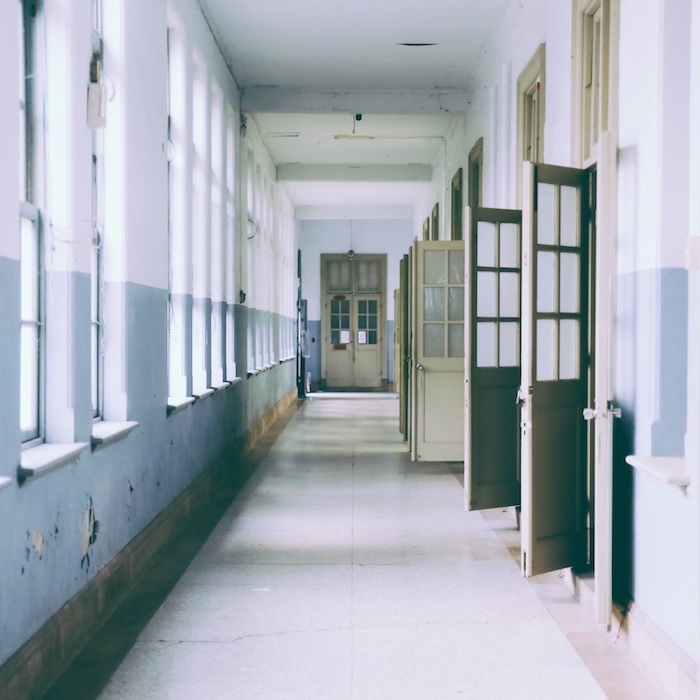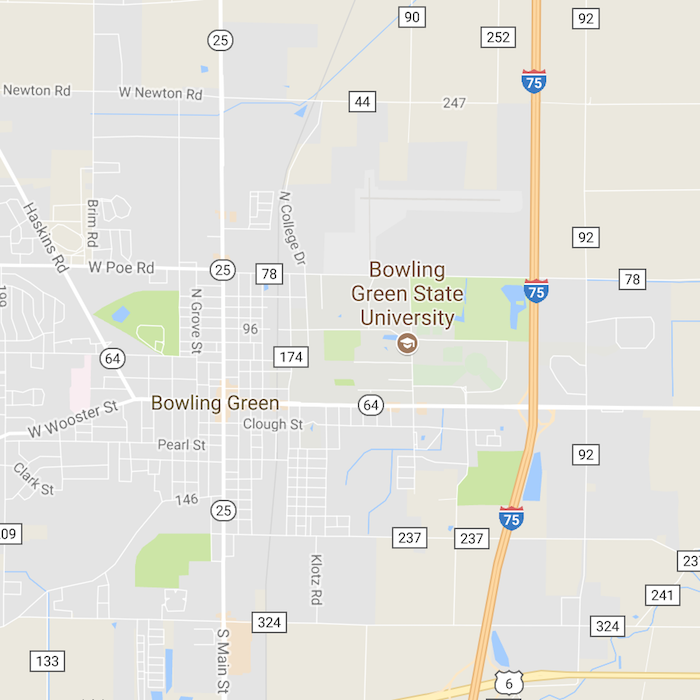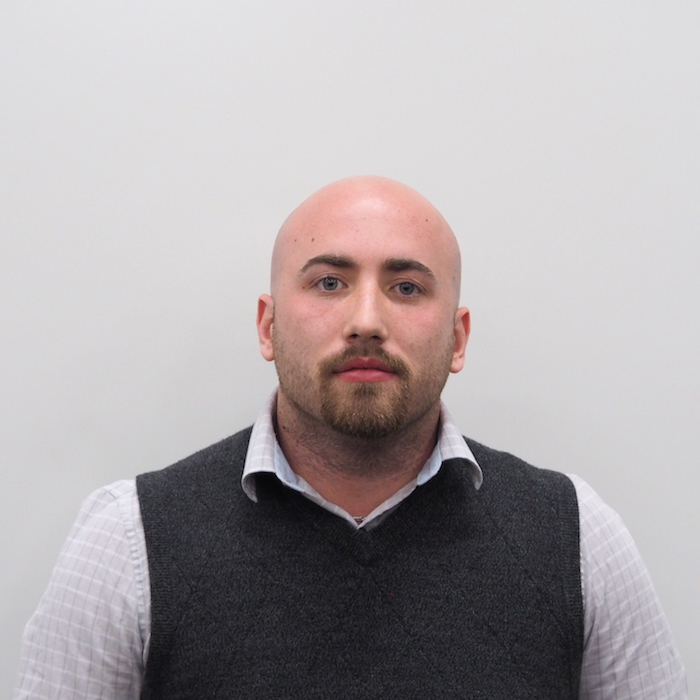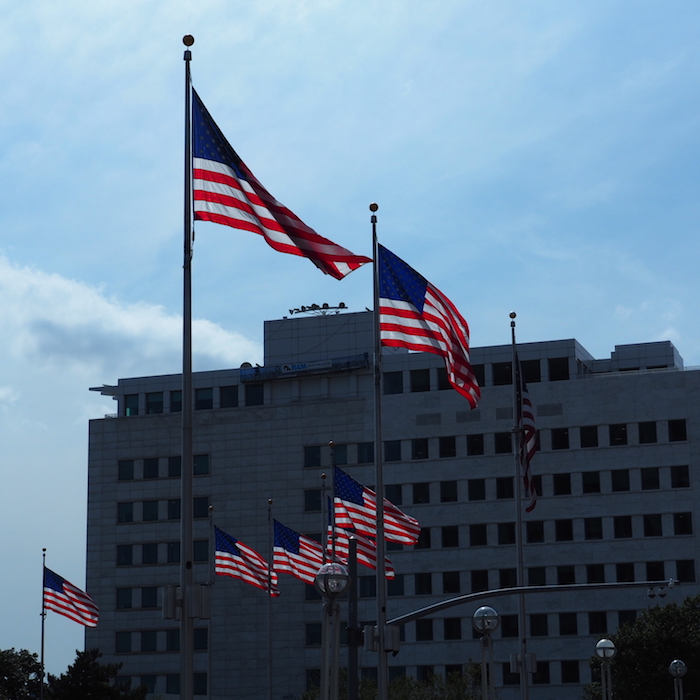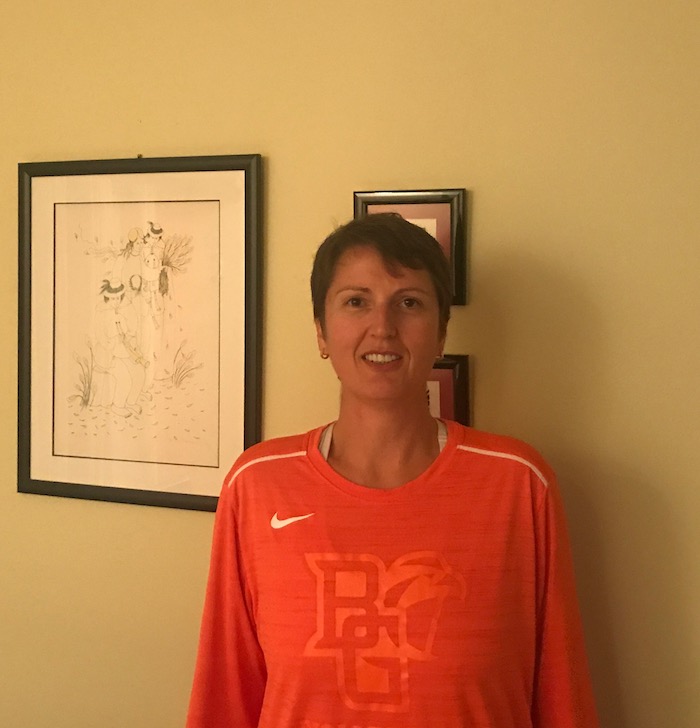Danijela is the Women’s Volleyball Coach at Bowling Green State University. After immigrating here from Bosnia in 1995, she is about to become a naturalized U.S. citizen. Witnessing the war in Yugoslavia has given her a strong perspective on America and our role as citizens.
On what she tries to teach her players about citizenship and leadership:
I want them to be themselves. I want them to understand that who they are – their uniqueness – is good. It makes the world better. We don’t want everyone to be the same; it’d be a boring world. During college, I think it’s important for them to have support (in becoming themselves).
I’ve also told them, most importantly, to stand up for justice. We’ve talked about how when they see injustice happen, they need to act, because if you don’t act, you approve (that injustice). That’s something I want them to get out of being my players. You don’t stay silent and watch history pass you. You need to be active. Last year, I encouraged them all to vote. I told them it doesn’t matter who they vote for; they need to vote. They need to participate in the process of democracy.
Her perspective on citizenship based on the war in Yugoslavia:
I think the duties of a citizen (come down to) defending democracy. I think I have a different perspective because I witnessed the war in Bosnia and Croatia, where hate divided the country. Bosnia was specific; it was the most multicultural of the countries in Yugoslavia. To see how manipulation, propaganda, and hate can ruin people’s lives (is horrible). And then to have a second chance and come here, where people don’t care who you are, at least from my perspective (with the caveat of the experience of African-Americans throughout history), and now see signs of what was happening in Yugoslavia, and knowing how dangerous it is, it’s very important we protect democracy.
Her diagnosis of how Americans fall short as citizens:
People take democracy for granted here. People here haven’t experienced war, or seen what I’ve seen.
Why free inquiry makes U.S. citizenship unique and special:
Even before the war, being in a citizen in Yugoslavia was completely different. You did what you’re supposed to do, what you were told to do. We had a good life. But it’s really different how people debate and think different ideas, different ideologies, and that’s okay here. We should debate, and have dialogue, and have different ideas here. And that’s celebrated. I think we have the best democracy (a country) could have. Studying for my citizenship test, I think it’s a very special thing, having the oldest Constitutional system in the world, and we should cherish it and try to make it better.
Her thoughts on the proposed border wall:
I have an issue that in the 21st century that there’s a policy based on building a wall. I see it as un-American. As an immigrant, it’s hard to see that.
The most important things Americans need to know about our history:
The first thing we all need to understand is that all men are created equal. I don’t know how much clearer that should be.
We all also need to know that this country was built by immigrants. Unless you’re a Native American, you’re from somewhere else, and that’s what makes this country special.
On the key to being an American:
I think being an American means embracing the uniqueness of everybody. If you don’t embrace that tapestry of this country, if you don’t embrace it and say this is who we are and this is what makes us great, I think it’s un-American, because we all came from somewhere else.
